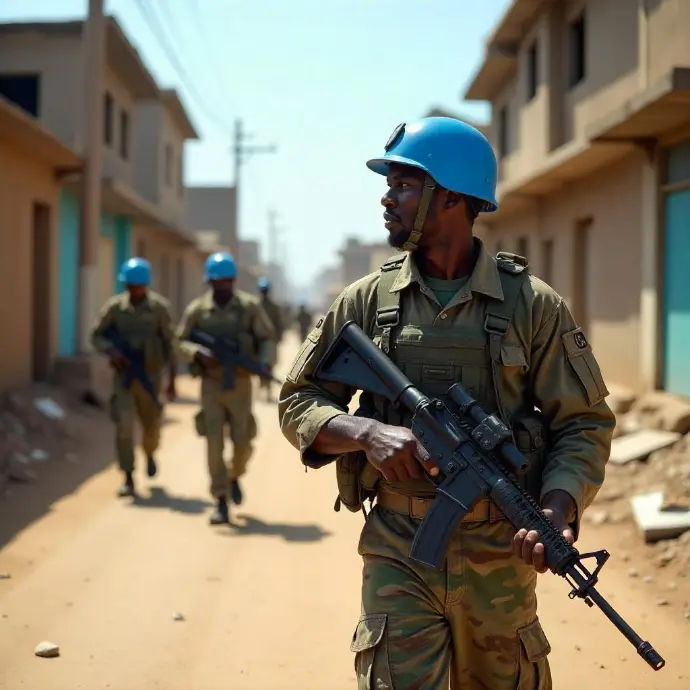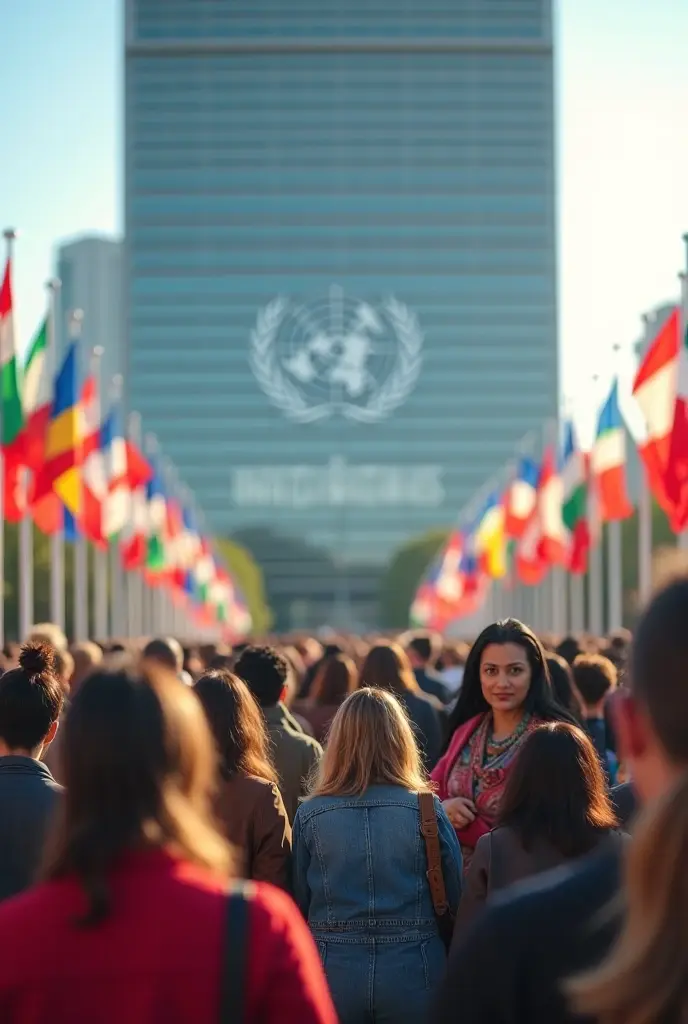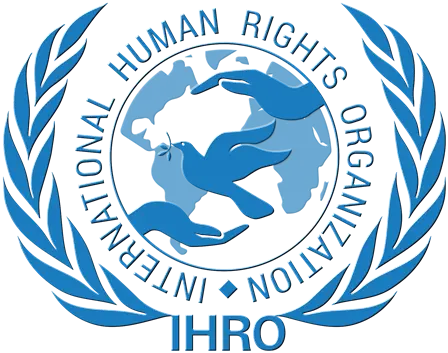In our feature article, "The UN and Human Rights: Effective Protector or Bureaucratic Giant?" we explore in depth the UN's role in protecting human rights worldwide. Prepare to dive into a comprehensive analysis that will challenge your perceptions and invite you to reflect on this crucial issue. Go ahead, delve into a world of information and inspiration!
Introduction
The relationship between the UN and human rights dates back to the Universal Declaration of Human Rights, adopted by the UN General Assembly in 1948. This historic milestone laid the foundation for the organization's commitment to promoting and protecting the fundamental rights of all people everywhere. Since then, the UN has played a crucial role in upholding human rights through treaties, conventions, and resolutions that seek to ensure respect and dignity for every individual.
The creation of the Office of the United Nations High Commissioner for Human Rights in 1993 marked a significant advance in the UN's efforts to monitor and address human rights violations worldwide. This office has become a fundamental pillar in the defense and protection of human rights, working closely with governments, non-governmental organizations, and other actors to promote equality, justice, and non-discrimination.
The history of the UN and human rights reflects a continuing commitment to building a world where human rights are respected, protected, and guaranteed for all, without distinction of race, gender, religion, or political orientation.
The importance of the UN in the protection of human rights lies in its ability to set international standards, monitor their compliance, and advocate for justice and accountability in cases of violations. Through its various bodies, such as the Human Rights Council and the International Court of Justice, the UN plays a vital role in promoting equality, freedom, and human dignity throughout the world.
Furthermore, the UN works closely with Member States, civil society, and other international organizations to strengthen the protection of human rights at the national and international levels. Its efforts include conducting research, issuing reports, and implementing technical assistance programs aimed at strengthening countries' capacities to fulfill their human rights obligations.
The UN plays a fundamental role as a defender of human rights, advocating for justice, equality, and dignity for all people, and working tirelessly to eradicate discrimination and injustice in all their forms.
Despite its efforts, the UN has faced criticism and challenges in its role as a protector of human rights over the years. Some of the criticisms focus on the bureaucracy and complexity of the organization, which often hinder rapid and effective decision-making in situations of humanitarian crises or serious human rights violations.
Furthermore, the UN's lack of capacity to enforce its decisions and resolutions in certain contexts has raised questions about its effectiveness as a defender of human rights. The politicization of certain bodies and the influence of vested interests have also been criticized, posing significant challenges to the organization's credibility and legitimacy in its work to protect human rights.
Despite these challenges, the UN remains a crucial player in the promotion and protection of human rights globally, and its role in upholding justice, equality, and human dignity remains vitally important on the international stage.
The UN as Protector of Human Rights
The United Nations (UN) plays a fundamental role in the protection of human rights globally. Its primary role is to promote and protect human rights worldwide, setting international standards and monitoring their compliance by Member States. The UN also acts as an advocate for human rights, denouncing violations and advocating for justice and accountability.
In addition, the UN provides technical assistance and training to countries to strengthen their human rights capacities and works closely with non-governmental organizations and other actors to ensure the protection of the fundamental rights of all people.
The UN plays a crucial role as the guarantor of human rights at the international level, promoting their respect, protection, and observance by States and other relevant actors.
The UN has adopted numerous relevant actions and resolutions in defense of human rights throughout its history. Notable among these is the Universal Declaration of Human Rights, adopted in 1948, which establishes the fundamental principles in this area and has served as a framework for the development of subsequent treaties and conventions.
The UN has also established various mechanisms for the protection of human rights, such as the Commission on Human Rights and its successor, the Human Rights Council, which are responsible for examining the human rights situation in different countries, making recommendations, and conducting investigations into cases of serious violations.
Furthermore, the UN has promoted the adoption of international human rights treaties, such as the International Covenant on Civil and Political Rights and the International Covenant on Economic, Social and Cultural Rights, which establish specific human rights obligations for States.
The impact of the UN on the promotion and protection of human rights globally has been significant. Through its actions, resolutions, and oversight mechanisms, the UN has contributed to highlighting human rights violations, promoting accountability, and raising awareness about the importance of respecting and protecting the fundamental rights of all people.
Furthermore, the work of the UN has led to progress in the protection of vulnerable groups, conflict prevention, and the promotion of peace, justice, and sustainable development—all fundamental aspects of ensuring the full enjoyment of human rights worldwide.
Although challenges and criticisms regarding the effectiveness of the UN in protecting human rights persist, its role as a global actor in this area is undeniable, and its work continues to be essential for advancing toward a more just, equitable, and respectful world of human dignity.
The protection of human rights is a crucial task that involves various international organizations. The UN, through its various entities such as the UN Human Rights Council, the Human Rights Council, and the International Court of Justice, has played a fundamental role in the promotion and protection of human rights globally. However, it is important to analyze how the UN's effectiveness in this area compares with other international organizations.
Organizations such as the European Union, the Inter-American Court of Human Rights, Amnesty International, and Human Rights Watch have also had a significant impact on the protection of human rights in different regions of the world. Comparing the UN's work with these organizations allows for the identification of strengths, weaknesses, and areas of potential collaboration to improve the protection of human rights globally.
It is important to assess each organization's responsiveness, influence, geographic reach, and effectiveness in implementing protective measures. Doing so provides a more complete picture of how the UN performs compared to other international entities in protecting human rights, which in turn can lead to improvements and more effective strategies to address violations worldwide.

Critical Analysis of the UN's Effectiveness in Protecting Human Rights
The United Nations (UN) plays a crucial role in defending and promoting human rights globally. However, its effectiveness as a protector of human rights is limited by a number of obstacles and challenges it faces in its work.
One of the main obstacles to the UN in its role as a protector of human rights is its dependence on the cooperation of Member States. In many cases, the national interests of certain countries can influence the UN's decisions and actions, limiting its ability to act effectively in situations of human rights violations.
Furthermore, bureaucracy and slow decision-making within the UN structure itself represent another major obstacle. Bureaucratic processes and a lack of agility can hinder the organization's ability to respond in a timely and effective manner to humanitarian crises and human rights violations.
To strengthen the UN's role in protecting human rights, it is crucial to implement a series of improvements and reforms that address the identified obstacles. One of the possible improvements is the review and update of decision-making mechanisms to streamline processes and allow for a more rapid and effective response to humanitarian crises and human rights violations.
Furthermore, promoting the independence and impartiality of the UN's actions, as well as strengthening its capacity to act autonomously and without external influence, are fundamental aspects to improving its effectiveness as a protector of human rights globally.
Another important measure is fostering cooperation and dialogue among different international actors, including governments, non-governmental organizations, and civil society. This would allow for greater coordination of efforts and a more comprehensive and effective response to human rights violations worldwide.
There are relevant experiences and testimonies that highlight the effectiveness of the UN in protecting human rights in different contexts. For example, the UN's work in promoting gender equality, combating racial discrimination, and protecting children's rights has had a significant impact on the guarantee of these rights at the international level.
Furthermore, testimonies from survivors of armed conflicts and humanitarian disasters, as well as human rights defenders, highlight the importance of the UN's presence and action in protecting human rights in situations of crisis and vulnerability.
These experiences and testimonies underscore the relevance of the UN's role as a protector of human rights and the need to continue strengthening its work in this area to ensure respect for and promotion of human rights worldwide.

The Future of the UN as a Protector of Human Rights
Today, the protection of human rights faces emerging challenges that require the attention and action of the international community, with the UN at the forefront of this effort. One of the most pressing challenges is the growing refugee crisis worldwide, with millions of people displaced due to armed conflict, persecution, and violence. The UN is uniquely positioned to address this crisis through its specialized agencies, such as the United Nations High Commissioner for Refugees (UNHCR), and its human rights protection mechanisms. However, the magnitude of this crisis requires an even more comprehensive and coordinated approach by the UN and its Member States.
Another emerging human rights challenge is the growing influence of technology in everyday life and its impact on privacy and freedom of expression. The UN must be at the forefront of developing international standards to protect fundamental rights in the digital context, addressing issues such as mass surveillance, online censorship, and equitable access to technology. These challenges require the UN not only to react to crises but also to anticipate and adapt to changes in the global human rights landscape.
Furthermore, climate change poses increasingly urgent challenges for the protection of human rights, particularly for vulnerable communities facing the disproportionate impact of extreme weather events and environmental degradation. The UN, through its human rights mechanisms and its focus on sustainable development, must intensify its efforts to address this intersection between human rights and the environment, ensuring that responses to climate change respect and protect the human rights of all people.
Faced with these emerging challenges, the UN faces a crossroads in its role as protector of human rights. There are various expectations and possible scenarios that could define its future work in this area. On the one hand, the UN is expected to strengthen its capacity to prevent human rights violations before they occur, adopting a proactive and preventive approach rather than a purely reactive one.
Furthermore, the UN must intensify its commitment to accountability and justice for victims of human rights violations, working closely with member states, civil society, and other international organizations to ensure that those responsible are held accountable for their actions. This approach should include both national accountability and cooperation with the International Criminal Court in cases of crimes against humanity, genocide, and war crimes.
Finally, the UN must reaffirm its commitment to the universality and indivisibility of human rights, equitably and effectively addressing both civil and political rights and economic, social, and cultural rights. The effective protection of human rights requires a comprehensive approach that recognizes the interdependence of all human rights and holistically addresses the underlying causes of violations.
Conclusion
The effectiveness of the UN in protecting human rights is a topic that has generated debate over the years. On the one hand, the organization has made significant progress in promoting human rights globally, through the adoption of international treaties and the creation of monitoring and follow-up mechanisms. However, the bureaucracy and complexity of the UN structure have often hampered its ability to respond swiftly and effectively to humanitarian crises and human rights violations in real time.
It is essential to find a balance between effectiveness and bureaucracy so that the UN can fulfill its role as an effective protector of human rights. This implies the need for internal reforms that streamline decision-making and response processes, while maintaining the standards of transparency and accountability that are fundamental to the functioning of the organization.
Furthermore, it is important that UN Member States make a genuine commitment to the protection of human rights, working closely with the organization and providing it with the necessary support so that it can carry out its work effectively and without bureaucratic obstacles.
Ultimately, the role of the UN in defending human rights globally is vitally important. Despite the challenges it faces, the organization remains a central player in the promotion and protection of human rights worldwide. Its ability to build consensus, mobilize resources, and set international standards places it in a unique position to address human rights violations and promote equality, justice, and dignity for all people.
It is critical that the UN continue to adapt to the challenges of the 21st century, strengthening its capacity to prevent conflicts, protect the most vulnerable groups, and address the underlying causes of human rights violations. Likewise, the organization must continue to encourage the active participation of civil society, non-governmental organizations, and other relevant actors in its human rights advocacy initiatives to ensure that the voices of those most in need are heard and taken into account in its work.
The UN has the potential to be an effective protector of human rights globally, provided it continues to adapt, improve its effectiveness, and maintain its commitment to the fundamental principles of human rights.
Its work is essential in a world where human rights challenges remain urgent and complex.
Today, safeguarding human rights remains a significant global challenge, and the United Nations plays an essential role in this context. This is an opportune moment to consider how each individual can contribute to the defense of human rights, as well as how we can urge international organizations, including the UN, to exercise their responsibility as effective defenders of the fundamental rights of all people on the planet.


 IHRO NEWS
IHRO NEWS